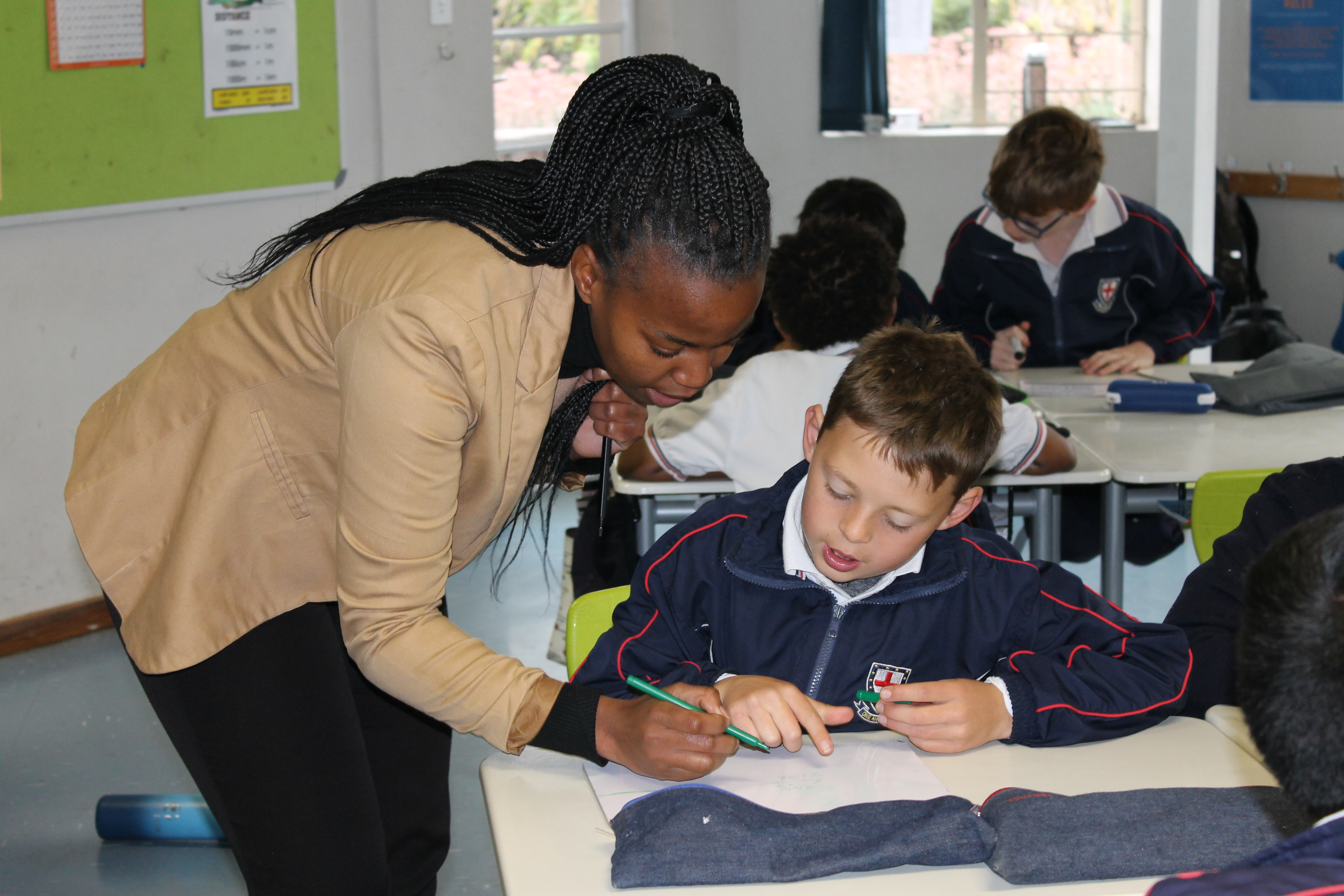Thandulwazi Initial Teacher Training Programme
The Thandulwazi Interns study part-time for their chosen degrees, while undertaking on-the-job Teacher training in Gauteng Province and Limpopo Province. Most of our Interns work at St Stithians College which is a co-ordinate model, comprising of five schools on one campus which cater for pupils across the phases; from the Foundation Phase to the Further Education & Training (FET) Phase. The Limpopo Interns are based at public schools in the Waterberg Distict and the Capricorn District.
The Thandulwazi Initial Teacher Training Programme sees us supporting Intern Teachers in Gauteng Province and Limpopo Province that are on course to complete their B.Ed or PGCE Teaching qualifications. Most of the Gauteng Interns are based at St Stithians College with a select few working at Craighall Primary School, Bryanston Primary School and Ferndale High School. It is now complusory for the Gauteng Interns to do a year's training at a public school. The Limpopo Interns are based at public schools in the Waterberg District and Capricorn District.
Interns experience a variety of teaching situations and methodologies during their training. It is anticipated that most Interns will require approximately five years to complete the combination of formal (part-time) tertiary education and practical Teacher training to obtain their B.Ed Degrees and two years to attain their PGCE. Mentorship is an integral feature of the Thandulwazi Programme and provides the Interns with the professional support and assistance required to ease the critical transition from Student to Teacher. During the internship, a Mentor is assigned to each Intern. The former are specially trained, experienced Teachers who offer professional input, guidance and advice to each Intern, thus ensuring that there is appropriate support on a personal basis for every Intern. In line with good practice, each candidate on the internship programme spends at least 70% of his/her time in the classroom. Interns are not a replacement for qualified Teachers, but rather act as Assistant Teachers in the classrooms. Once the candidate is competent in the classroom, he/she may teach in the classroom.
Assessment is ongoing. Each Mentor works daily with an Intern and is required to complete an evaluation form every term on that Intern. The Intern co-ordinator makes classroom visits to observe the Interns in action and has an individual meeting with each Intern to discuss academic progress, and to ascertain if any academic support is required. University results are monitored by the Programme co-ordinator who has access to the Interns’ online University portfolios. After completion of their internship, the individuals concerned are encouraged to teach for a minimum period (on a year for year basis), at a school that primarily focusses on teaching Learners from the group described as “previously disadvantaged South Africans”.
"Education is the most powerful weapon which you can use to change the world."
(Nelson Mandela)







